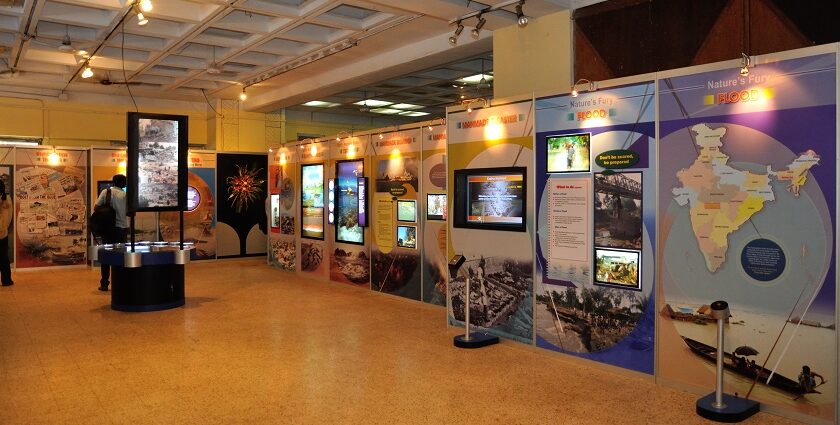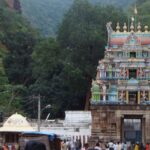Situated in the heart of Meghalaya, the Ever Living Museum provides an immersive exploration of the rich cultural heritage and traditions of the Khasi tribe. This exceptional museum goes beyond merely displaying artefacts; it serves as a dynamic showcase of the vibrant customs, rituals, and lifestyles that have defined the region’s history. Through its diverse exhibits, visitors can gain a profound understanding of the Khasi people’s historical and cultural evolution, experiencing firsthand the practices and artefacts that have been integral to their way of life.
Location
Photo: ঈশান জ্যোতি বৰা / Wikimedia Commons / Image For Representation Only
The Ever Living Museum is situated in the quaint village of Nongstoin, tucked away in the tranquil surroundings of Meghalaya. The rich cultural tapestry of the Khasi, Jaintia, and Garo tribes of Meghalaya can be fully experienced in this museum. Nestled among verdant foliage and classic architecture, it serves as a symbol of the area’s cultural legacy. The museum is easily accessible from Shillong, which is just a two-hour drive away, making it a perfect pit stop for travellers taking in India’s northeastern splendour.
Suggested Read: Top Offbeat Places In Meghalaya That You Must Visit On Your Trip
How To Reach
Photo: आशीष_भटनागर / Wikimedia Commons
By Air: The nearest airport is Shillong Airport (also known as Umroi Airport), located approximately 30 kilometres from the city centre. You can hire a taxi or use a ride-sharing service to reach the Ever Living Museum.
By Train: The nearest railway station is Guwahati Railway Station in Assam, about 100 kilometres from Shillong. You can take a taxi or bus from Guwahati to Shillong. The journey by road offers scenic views of the hills and valleys.
By Road: Shillong is well-connected by road to Guwahati. The drive takes around 3-4 hours and offers breathtaking views of the Khasi Hills. Once in Shillong, you can use local taxis, auto-rickshaws, or walk to the museum, depending on your location.
Things To See In Ever Living Museum
1. Traditional Artifacts
Photo: Biswarup Ganguly / Wikimedia Commons / Image For Representation Only
The Ever Living Museum stands out for its immersive experience, offering visitors a deep dive into the rich heritage of Meghalaya. The museum features a fascinating array of traditional artefacts, including historical clothing, weaponry, and everyday household items that vividly illustrate the region’s past. Cultural exhibits provide insights into Khasi rituals, festivals, and daily life, with detailed displays and interactive elements that bring these traditions to life. Adding to the museum’s uniqueness, visitors can engage directly with local artisans and storytellers. You also get to hear the story of captivating legends and folklore of the Khasi people.
Suggested Read: The Mysterious Caves In Meghalaya
2. Highlights
Photo: Sujan Bandyopadhyay / Wikimedia Commons / Image For Representation Only
At the Ever Living Museum, you can explore reconstructed traditional Khasi homes, which are furnished with original furnishings and decorations, offering a glimpse into the daily lives of the Khasi people. The museum also features live craft demonstrations where skilled artisans showcase traditional techniques such as bamboo weaving and pottery. Additionally, you can enjoy vibrant cultural performances that highlight the traditional music and dance forms of the Khasi tribe, providing a lively and engaging experience of their rich heritage.
Where To Stay
Photo: Haider Syed / Pexels / Image For Representation Only
When planning your visit to the Ever Living Museum in Shillong, you’ll find a range of accommodation options to suit different preferences and budgets. For a comfortable and convenient stay, consider booking a room at well-regarded hotels such as Hotel Polo Towers and The Grand Khalsa. If you’re looking for a more immersive experience, you might opt for local guesthouses in the charming areas of Umden or the nearby Ri Bhoi District.
Suggested Read: Things To Do In Meghalaya To Make Your Trip Even More Memorable
Where To Eat
Photo: Gitika Gayan / Wikimedia Commons / Image For Representation Only
While visiting the Ever Living Museum, you can savour Khasi cuisine at nearby eateries like Meghalaya Café and Nongpoh’s Delight. offers traditional dishes such as Jadoh (rice and meat), Tungrymbai (fermented soybeans with pork), and Khatkhate (spicy vegetable stew). Nongpoh’s Delight features local favourites like Dohneiiong (pork with black sesame seeds) and Bitchi (spicy fish curry). For a quick snack, small stalls and kiosks around the museum provide treats like Pukhlein (sweet rice cakes) and fresh fruit juices, perfect for a refreshing break.
Best Time To Visit
Photo: Prodeepta Bera / Unsplash / Image For Representation Only
The best time to visit the Ever Living Museum is from October to March when the weather is pleasant and suitable for outdoor activities. The region experiences heavy rainfall from June to September, which can make travel challenging.
Suggested Read: Top Places To Visit In Meghalaya In June
Other Factors To Consider
Photo: Rachel Claire / Pexels / Image For Representation Only
Tips For Travellers
- Guided Tours: Opt for a guided tour to enhance your experience with in-depth explanations and stories.
- Photography: Be mindful of photography rules, as some areas may have restrictions.
- Dress Comfortably: Wear comfortable clothing and sturdy shoes as the museum may involve some walking.
- Respect Local Customs: Follow any guidelines provided by museum staff to respect the cultural significance of exhibits.
- Bring Cash: Some small shops and food stalls may not accept card payments, so carry sufficient cash.
The Ever Living Museum in Meghalaya is more than just a collection of artefacts. With its captivating exhibits and interactive displays, it provides a deep dive into the traditions, and lifestyles of Meghalaya’s indigenous communities. Whether you’re a history enthusiast or simply curious about local heritage, a visit to this museum promises an enriching experience. Plan a trip with TripXL and gain some cultural knowledge of Meghalaya.
Cover Photo: Biswarup Ganguly / Wikimedia Commons / Image For Representation Only


 WhatsApp
WhatsApp
 Twitter
Twitter



